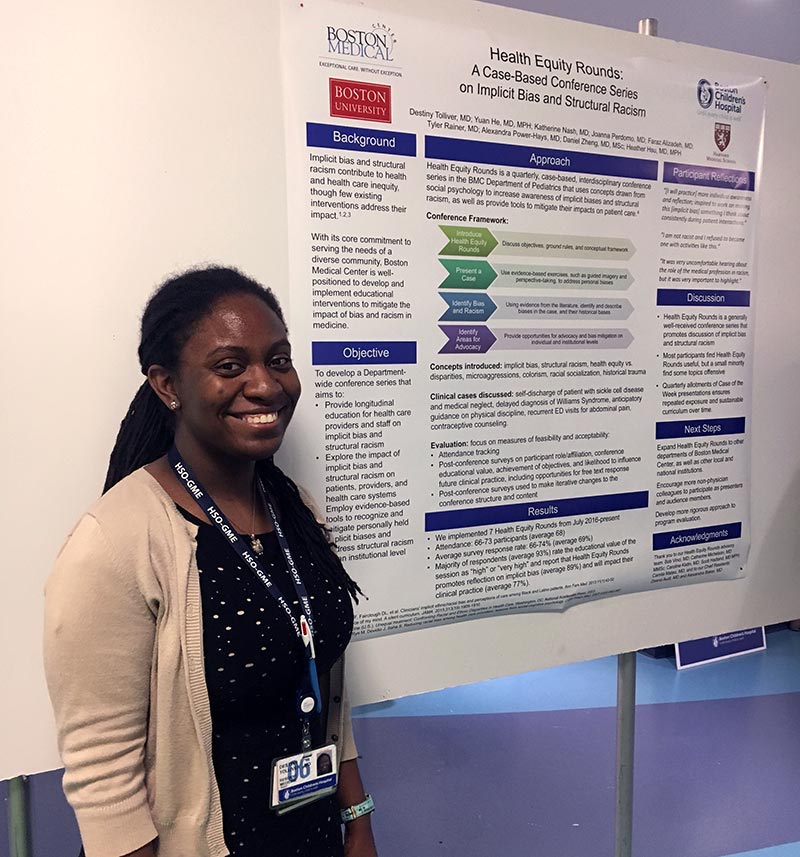We believe medical education is a vehicle to encourage reflection and action towards health equity.
A Brief History
Health Equity Rounds was developed and first presented in 2016 at Boston Medical Center by residents in the Boston Combined Residency Program (BCRP) in Pediatrics in response to a lack of longitudinal and interdisciplinary opportunities to engage in crucial conversations about racism in medical settings. The program has since expanded to institutions across the US and Canada, and now even has its own series in the journal Hospital Pediatrics. At Boston Medical Center, Health Equity Rounds is led by pediatric residents with faculty mentorship. While the initial focus of Health Equity Rounds was naming and addressing medical racism, we encourage presenters to use an intersectional lens and to consider how other forms of systemic oppression may influence health and healthcare.

Health Equity Rounds Curriculum and Objectives
Identify and analyze the effects of bias, racism, and other forms of intersectional systemic oppression in clinical scenarios
- Describe the historical context and present-day role of structural racism and its impact on health and the healthcare system
- Employ evidence-based tools to recognize and mitigate personally held biases
- Use newly learned strategies to reduce the impact of bias on patient care and combat structural racism at the institutional and societal levels
Health Equity Rounds Structure
- Presentation Outline
- Review key concepts and definitions; clinical case begins
- Review historical context and present-day data that demonstrate how bias and structural racism influence the case
- Discuss evidence-based tools and next steps
In each conference, we utilize evidence-based tools from social psychology – including individuation, personal reflection, and perspective-taking – to combat the impact of personally held biases on clinical practice.
Example Health Equity Rounds Topics
Pharmacoequity
Mistrust vs. distrust
The role of hospital public safety
Palliative care disparities
Healthcare for LGBTQ+ adolescents
Participants
Healthcare providers from various disciplines, roles and levels of training may participate in Health Equity Rounds. We educate students and trainees, the providers of the future, but also faculty and hospital leadership who model behavior and dictate culture and policy in the present.
You may also learn more about Health Equity Rounds implementation and evaluation in MedEdPORTAL.
